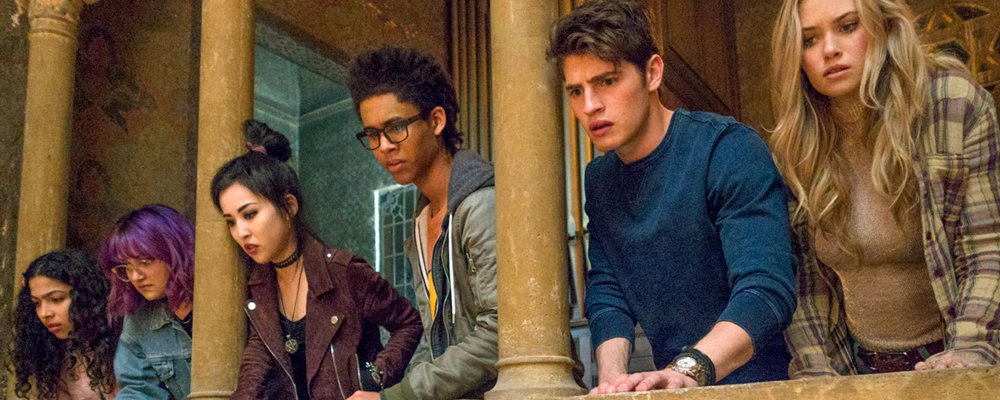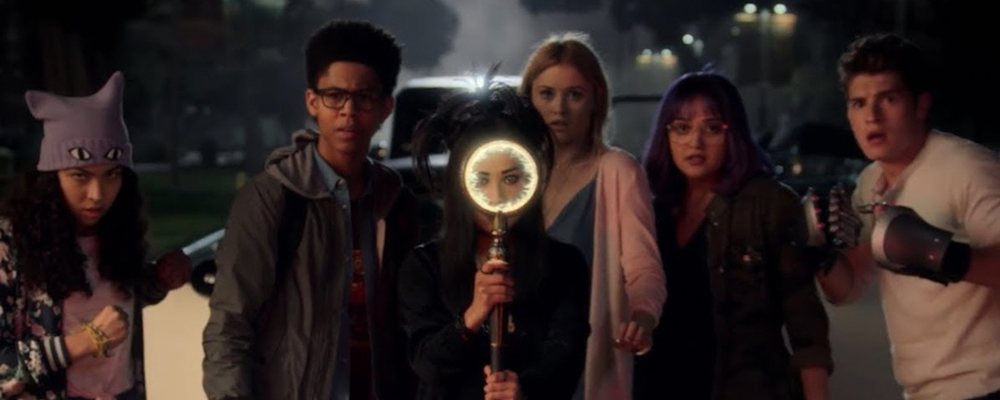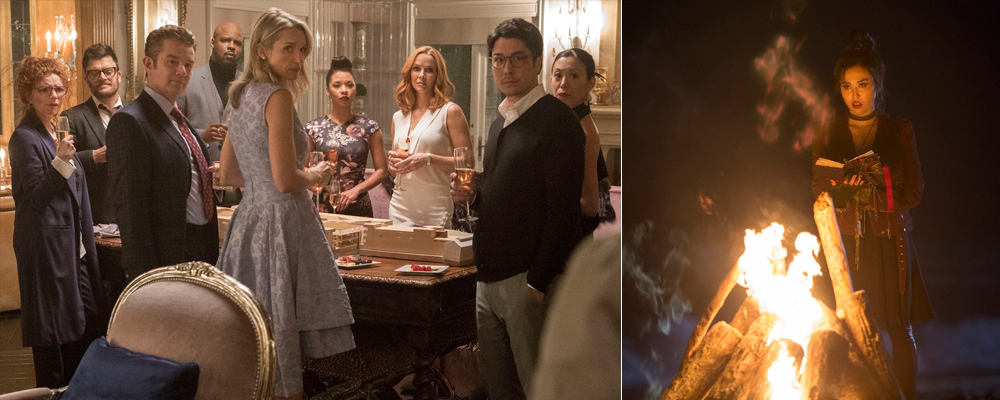‘Runaways’ on Hulu Makes Strides as Marvel’s Freshest Series
Aaron Berke
Marvel television properties have proven themselves infinitely malleable. Unlike the Marvel films, which stick to a fairly consistent tone and formula, the television series have run the genre spectrum. “Agents of Shield” is a slick action series, most in line with the films. The Netflix series like “Daredevil” and “Jessica Jones” are much darker, playing as serialized dramas. “Luke Cage” mixes the drama with elements of blaxploitation cinema. Now we have “Marvel’s Runaways,” Marvel’s first venture into Hulu streaming — and into a youth-centered concept. The series follows six young teenagers in the Marvel universe, all trying to cope with normal high school problems — and the realization that their parents are super villains. The result is the freshest Marvel series since “Daredevil” first launched the Netflix/Marvel brand. “Runaways” feels hip and relevant, and boasts a central mystery that’s instantly compelling.
The central characters are Alex Wilder (Rhenzy Feliz), a nerd who isolates himself playing video games; Nico Minoru (Lyrica Okano) a young goth who desperately wants to see her sister, Amy, again; Karolina Dean (Virginia Gardner) a girl who tries to be perfect for her family but secretly wants to rebel; Chase Stein (Gregg Sulkin) a low-key genius who’s squandered his potential by trying to blend in with dumb jocks; Gert Yorkes (Ariela Berer) a purple-haired hyper-feminist who thinks social justice is more important than showering; and Molly Hernandez (Allegra Acosta) the youngest member of the Runaways, who interestingly develops super powers before anyone else. This band of young teenagers used to be best friends, but grew apart after the apparent death of Amy. By the end of the pilot, they’re reunited once more, brought together by their private dysfunction — and the very public realization that their parents are all demonic cult worshippers who engage in human sacrifices.
The central conceit of “Runaways” is fascinating, but it doesn’t make itself known until the very last minutes of the pilot. Most of the episode revolves around the disconnected former friends and their desire to find themselves. There’s a sense of loss hanging over their heads, representative of the missing Amy. That loss imbues the episode with meaning, adding deeper layers to typical teenage drama. The episode largely takes place in their high school, and many of the usual teen tropes appear. Nico hides her pain in goth makeup, while Karolina hides it with fake smiles and a polite demeanor. Chase buries his feelings by acting like a douche bag, while Alex handles his pain by secluding himself. Gert deals with the loss by taking up causes that aren’t really her own, while Molly, the most honest and youngest of the group, ironically discovers her true abilities first. All of these problems are typical for teenagers, but made so much more compelling thanks to the mystery of Amy’s death. The kids’ problems aren’t random, they’re rooted in Amy’s disappearance, and as a result we really want to know what happened to her. The answer becomes clearer by the episode’s end, when we begin to suspect that Amy may have been the first sacrifice at the hands of the villainous parents.
The first episode’s plot features a fascinating bookend. It begins with a character named Destiny, who joins a bus that leads her into the cultish circles of the Runaways and their parents. Destiny herself is a runaway, and thematically she appears to initially be the most important character. Instead, Destiny’s appearance in the pilot serves only to act a sacrificial plot device to open up the mystery of the parents and their monstrous deeds. Destiny inadvertently brings the Runaways together at the end of the episode — but she never joins them. Destiny is (in the pilot at least) a structural device, but a necessary one. Because none of the Runaways actually run away in the pilot, it was essential for the writers to find someone who does. Destiny’s brief appearance thematically sets up the entire concept of the series.
“Runaways” breaks new ground in several interesting ways. Taking a page from “Spider-Man: Homecoming,” the cast is full of racial diversity, but “Runaways” never feels the need to explicitly draw attention to that fact. The diversity feels innate, which is so right for Marvel. The comic book company has always led the pack in promoting diversity, starting with the discrimination concept in “X-Men.” It feels right that Marvel continues to lead the diversity charge in film and television, when so many other movies and network television series continue to feature largely white and male dominated casts. “Runaways” also features more female than male protagonists, another triumph.
Tonally, the series also feels sharp and distinctive. The cinematography is more deliberate than in other Marvel series, boasting an exaggerated color palate that reminds us we’re watching something slightly to the left of reality. The music is largely synthesized, and takes on an eerie quality that punctuates the central mystery of the pilot. The mournful minor key strains remind me of the apocalyptic cries of the soundtrack to “Terminator 2,” which contained a profound sense of vacancy. Such vacancy permeates the soundtrack to “Runaways,” which really helps hit home the idea that these kids are missing something essential in their lives.
“Runaways” sets up a fascinating concept, and it’s unlike anything a Marvel series has attempted before. Each of the young characters are immediately compelling, and their bond feels completely authentic. As the young characters move to solve the mystery of their parents’ evil deeds, there’s a strong sense of camaraderie, and viewers are likely to experience immediate identification. After all, what kid didn’t imagine their parents were super villains? “Runaways” explores that concept and makes it literal, setting the stage for what looks to be a new kind of super hero series.
“Marvel’s Runaways” premieres Nov. 21 on Hulu.



